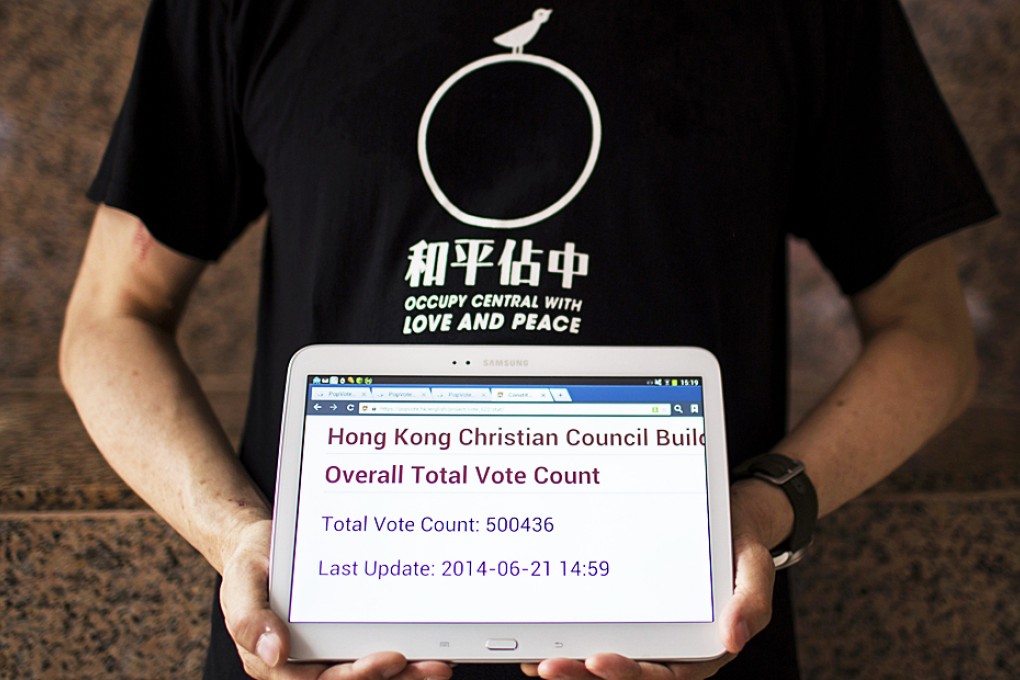What the Occupy Central referendum asks voters
The Occupy Central poll is asking voters to pick from three proposals for the 2017 chief executive election, and to say whether the legislature should veto a future government proposal if it does not satisfy international democratic standards.

The University of Hong Kong’s public opinion programme was commissioned by Occupy Central to conduct the poll which asks two questions.
In the first, voters pick from three proposals for the 2017 chief executive election put forward by civil groups. In the second, voters say if the legislature should veto a future government proposal if it does not satisfy international democratic standards. They can abstain on both questions.
The three proposals in the first question, sourced from the Occupy Central website, are:
1. Alliance for True Democracy Proposal
ATD’s Election Plan includes three channels for nomination: civil nomination, political party nomination, and nomination by the nominating committee. Civil nomination demands a candidate to secure the signed endorsement of 1 per cent of the registered voters; political party nomination requires a political party or coalition of political parties receiving 5 per cent or more of the total valid votes in the last Legislative Council direct election. The nominating committee shall not refuse to endorse the above nominees who meet the legal requirements. Political conditions such as “love China, love Hong Kong” and “no confrontations with the central government” are not acceptable.
ATD believes that civil nomination and political party nomination after due recognition by the nomination committee are within the scope of “democratic procedures”. It believes that its proposed plan satisfies the provisions of the Basic Law.
2. People Power Proposal